"Provides a valuable insight into the development of ideas that were to shape Hitler’s foreign policy after 1933."—Jeremy Noakes, The Times Literary Supplement “The text bears all of Hitler’s hallmarks, along with a terrifying, sustained belief in war and violence as a means to ensure that Germany would flourish.”—Publishers Weekly “He envisaged the German people becoming involved in a series of wars for Lebensraum culminating in an epic battle against America.”—Michael Smith, Daily Telegraph “The Second Book is in many ways more important than Mein Kampf.”—Guardian “I have never known anyone to say this is a forged document.”—Volker Berghahn, The New York Times “Hitler admires the ‘young, racially select’ American people and the nation’s restrictive immigration policies at the time.”—The New York Times “Far more than Mein Kampf, the Second Book establishes the grandiose scale of Hitler’s ambitions.”—Dennis Showalter, Colorado College “More clearly than ever, Hitler sketched out the worldwide struggle against the Jews which he and his party had to lead.”—Richard Overy, Guardian Hitler’s Second Book is the first complete and annotated edition of the manuscript Hitler dictated shortly before his rise to power four year after publishing Mein Kampf. It contains a catalog of shocking policy statements and previously undisclosed plans of world conquest at the core of Nazi ideology that Hitler concluded were too provocative for publication.
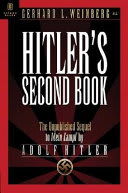
Average Rating
Informations
About the author
Adolf Hitler
Author
Adolf Hitler was an Austrian-born German politician who was the dictator of Germany during the Nazi period from 1933 until his suicide in 1945. He rose to power as the leader of the Nazi Party, becoming the chancellor in 1933 and then taking the title of Führer und Reichskanzler in 1934. His invasion of Poland on 1 September 1939 marked the outbreak of the Second World War. Throughout his leadership in the ensuing conflict, he was closely involved in the direction of German military operations and the perpetration of the Holocaust—the genocide of about six million Jews and millions of other victims.
Hitler's Second Book
by Adolf Hitler
Books Like Hitler's Second Book
If you're looking for books similar to Hitler's Second Book, here are some recommendations based on themes, tone, and narrative style.
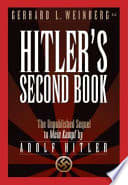
Mein Kampf
Adolf Hitler
Hitler's first autobiographical manifesto that outlines his political ideology and racial theories. The book provides a deep dive into Nazi philosophy and Hitler's personal worldview. It serves as a foundational text for understanding the origins of Nazi thought and Hitler's early political ambitions. The work reveals Hitler's views on nationalism, race, and his vision for Germany's future.
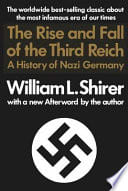
The Rise and Fall of the Third Reich
William L. Shirer
A comprehensive historical account of Nazi Germany from its origins to its collapse. The book offers an in-depth analysis of Hitler's regime, its political mechanisms, and its devastating impact on world history. Shirer provides extensive research and firsthand observations of the Nazi period. It explores the political, social, and ideological foundations of the Nazi state.
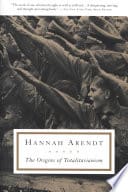
The Origins of Totalitarianism
Hannah Arendt
A philosophical analysis of the roots of totalitarian movements in the 20th century. Arendt provides a deep exploration of the ideological mechanisms that enable totalitarian regimes. The book examines the social and political conditions that make such systems possible. It offers profound insights into the nature of political evil and mass manipulation.
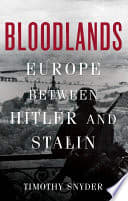
Bloodlands
Timothy Snyder
An examination of the brutal policies of Nazi Germany and Soviet Russia in Eastern Europe. The book reveals the horrific human cost of totalitarian ideologies during World War II. Snyder meticulously documents the mass killings and systematic violence in the region. It provides crucial context for understanding the ideological motivations behind Nazi expansionism.
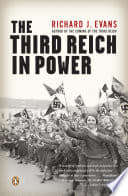
The Nazi Seizure of Power
Richard Evans
A detailed study of how the Nazi Party rose to power in Germany. The book explores the social and political conditions that enabled Hitler's ascent. Evans analyzes the mechanisms of Nazi political manipulation and social control. It provides insight into the gradual erosion of democratic institutions that allowed Nazi ideology to take root.
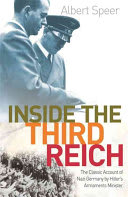
Inside the Third Reich
Albert Speer
A memoir by Hitler's chief architect and minister of armaments, offering an insider's perspective on the Nazi regime. Speer provides unique insights into Hitler's inner circle and the workings of the Nazi government. The book reveals the personal dynamics and ideological fervor within the Nazi leadership. It offers a complex view of complicity and moral compromise.
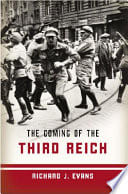
The Coming of the Third Reich
Richard J. Evans
A comprehensive examination of the historical context that led to Nazi Germany's emergence. Evans traces the political, social, and cultural developments that paved the way for Hitler's rise. The book provides a nuanced analysis of the complex factors contributing to the Nazi takeover. It explores the deep-seated tensions in German society that enabled Nazi ideology.

Hitler's Willing Executioners
Daniel Goldhagen
A controversial study of ordinary Germans' participation in the Holocaust. The book argues that widespread anti-Semitism was central to Nazi atrocities. Goldhagen explores the cultural and ideological foundations of Nazi violence. It provides a provocative analysis of individual and collective responsibility during the Third Reich.

Ordinary Men
Christopher Browning
A study of how ordinary German police battalions became involved in mass murder during the Holocaust. Browning explores the psychological mechanisms that enable ordinary people to commit extraordinary atrocities. The book provides a nuanced examination of individual choice and collective responsibility. It reveals the complex process of moral transformation under totalitarian regimes.
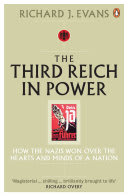
The Third Reich in Power
Richard J. Evans
A comprehensive examination of Nazi Germany's social and political transformation after Hitler's rise to power. Evans details how the Nazi regime reshaped German society through propaganda, terror, and ideological control. The book explores the mechanisms of totalitarian governance and social engineering. It provides a thorough analysis of the Nazi state's inner workings.
No account connected — sign in to comment.
